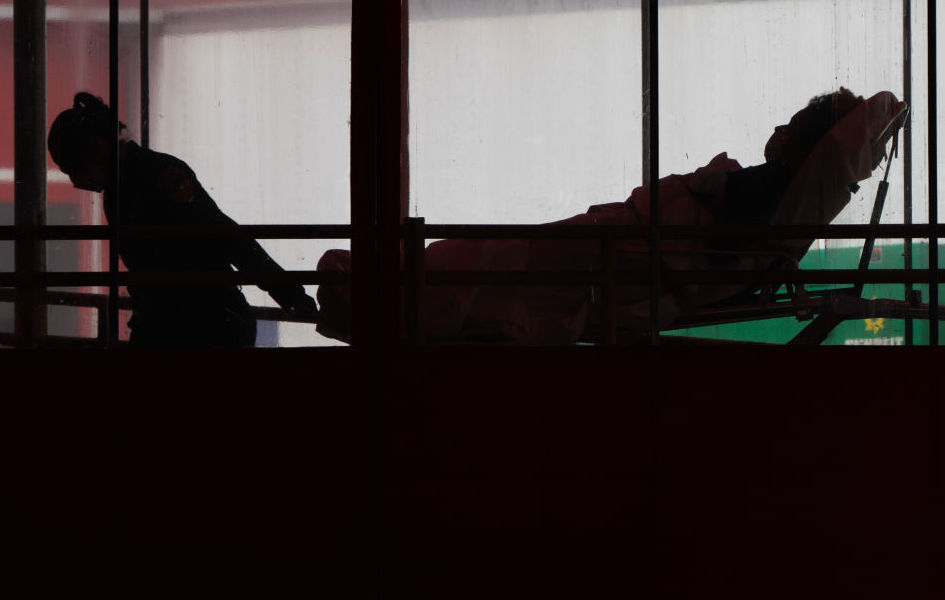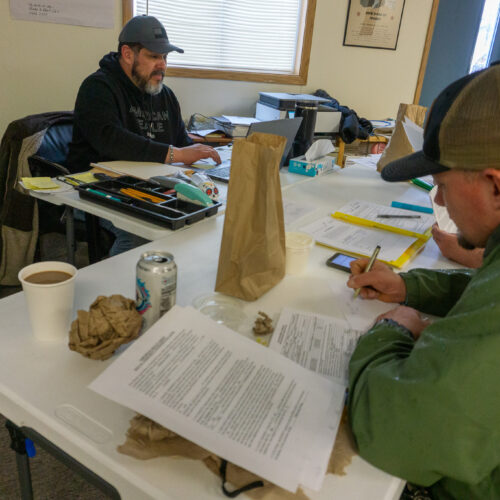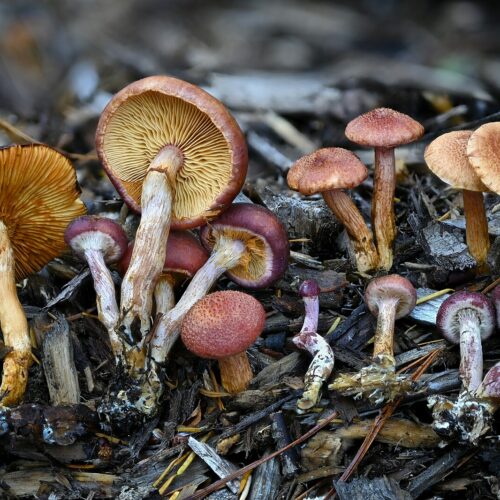
Who’s Hit Hardest By COVID-19? Why Obesity, Stress And Race All Matter
BY ALLISON AUBREY
As data emerges on the spectrum of symptoms caused by COVID-19, it’s clear that people with chronic health conditions are being hit harder.
While many people experience mild illness, 89% of people with COVID-19 who were sick enough to be hospitalized had at least one chronic condition. About half had high blood pressure and obesity, according to data from the CDC. And about a third had diabetes and a third had cardiovascular disease. So, what explains this?
“Obesity is a marker for a number of other problems,” explains Dr. Aaron Carroll, a public health researcher at the Indiana University School of Medicine. It’s increasingly common for those who develop obesity to develop diabetes and other conditions, as well. So, one reason COVID-19 is taking its toll on people who have obesity is that their overall health is often compromised.

An EMT wearing protective equipment carries a patient into Elmhurst Hospital Center in the Queens borough of New York. Preliminary data suggest COVID-19 is having a disproportionate impact on communities of color.
CREDIT: Bloomberg/Bloomberg via Getty Images
But does obesity specifically affect the immune system? Perhaps.
Prior research has shown that people with obesity are less protected by the flu vaccine. They tend to get sicker from the respiratory disease even if they’ve been immunized. In fact, researchers have found that as people gain excess weight, their metabolism changes and this shift can make the immune system less effective at fighting off viruses.
“What we see with obesity is that these [immune] cells don’t function as well,’ says Melinda Beck, a health researcher at University of North Carolina, Chapel Hill. Basically, she explains, obesity throws off the fuel sources that immune cells need to function. “The [immune cells] are not using the right kinds of fuels,” Beck says. And, as a result, the condition of obesity seems to “impair that critical immune response [needed] to deal with either the virus infection or [the ability] to make a robust response to a vaccine.”
So this is one explanation as to why people with obesity seem more vulnerable to serious infection. But, there are many more questions about why some people are hit harder, including whether race is a factor.
The CDC found that 33% of people who’ve been hospitalized with COVID-19 are African-American, yet only 13% of the U.S. population is African-American. Some local communities have found a similar pattern in their data. Among the many (26) states reporting racial data on COVID-19, blacks account for 34% of COVID deaths, according to research from Johns Hopkins University.
This disproportionate toll can be partially explained by the fact that there’s a higher prevalence of obesity, high blood pressure and diabetes among African Americans compared to whites.
And as Anthony Fauci said last week at a White House Coronavirus Task Force briefing, this crisis “is shining a bright light on how unacceptable that is, because yet again, when you have a situation like the coronavirus, [African-Americans] are suffering disproportionately.”
There are several factors that may make African Americans more vulnerable to COVID-19, including certain genetic factors. “There have been a few studies that have pointed to African Americans potentially having genetic risk factors that make them more salt sensitive,” says Renã Robinson, a professor of chemistry who researches chronic disease at Vanderbilt University. This may increase the likelihood of high blood pressure, which in turn, is linked to more serious illness from COVID-19. “It could be a contributing factor,” she says, but she says there are likely multiple causes at play.
Another issue to consider, she says, may be high stress levels. She says when a person experiences racial discrimination it can contribute to chronic stress. She points to several studies that link discrimination and stress to higher levels of inflammation among black adults.”And chronic stress can make one more vulnerable to infection because it can lower your body’s ability to fight off an infection,” she says.
Chronic stress is linked to poverty — so this could be a risk factor for low-income communities. In fact, research has shown that people who report higher levels of stress are more likely to catch a cold, when exposed to a virus, compared to people who are not stressed.
According to a new survey from Pew Research Center health concerns about COVID-19 are much higher among Hispanics and blacks in the U.S. While 18% of white adults say they’re “very concerned” that they will get COVID-19 and require hospitalization, 43% of black respondents and 31% of black adults say they’re “very concerned” about contracting COVID.
And other aspects of structural racism could contribute to the elevated risk for black Americans.
“Every major crisis or catastrophe hits the most vulnerable communities the hardest,” say Marc Morial, president and CEO of the National Urban League. And he points to several factors that help to explain the racial divide.
“Black workers are more likely to hold the kinds of jobs that cannot be done from home,” Morial says. So, they may be more likely to be exposed to the virus, if they are working in places where it’s difficult to maintain social distancing. In addition, he points to longstanding inequities in access to quality care.
“There also is bias among health care workers, institutions and systems that results in black patients … receiving fewer medical procedures and poorer-quality medical care than white individuals,” he says. He says an expansion of Medicaid into those states that still haven’t expanded would be one effective policy to address these inequities.
The characteristics of the communities people live in could affect risk, too especially for those who live in low-income neighborhoods. The roots of chronic illness stem from the way people live and the choices that may or may not be available to them. People who develop the chronic illnesses that put them at higher risk of COVID-19 often lack access to affordable, healthy foods or live in neighborhoods where it’s not safe to play or exercise outside.
“Let’s take a patient with diabetes for example. They are already at high-risk for COVID-19 by having a chronic condition,” says Joseph Valenti, a physician in Denton, Texas, who promotes awareness of the social determinants of health through his work with the Physicians Foundation.
“If they also live in a food desert, they have to put themselves in greater risk if they want access to healthy food. They may need to take a bus, with people that have COVID-19 but aren’t showing symptoms, to get access to nutritious food or even their insulin prescription,” he says.
Poor nutrition, and the obesity linked to it, is a leading cause of premature death around the globe. And, this pandemic brings into focus the vulnerability of the millions of people living with lifestyle-related, chronic disease.
“We’re seeing the convergence of chronic disease with an infection,” says UNC’s Beck. And the data suggest that the combination of these two can lead to more serious illness. “We’re seeing that obesity can have a great influence on infection,” she says.
So, will this shine a spotlight on the need to address these issues? “Hopefully,” Beck says. “I think paying attention to these chronic diseases like obesity is in everybody’s best interest.”















